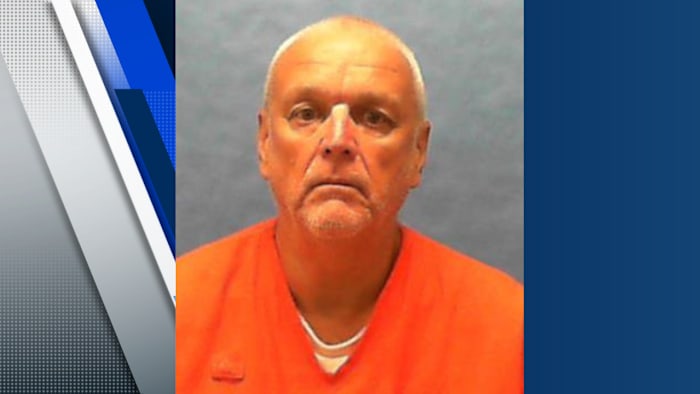RAIFORD, Fla. – After courts rejected arguments that he should not be executed because of his age, 72-year-old Samuel Smithers was put to death by lethal injection Tuesday evening at Florida State Prison in the 1996 murders of two women in Hillsborough County.
Smithers, who was pronounced dead at 6:15 p.m., was the 14th Florida inmate executed this year, adding to a modern-era record for a year. Gov. Ron DeSantis also has signed death warrants for two more inmates to be put to death.
Tuesday’s execution came hours after the U.S. Supreme Court rejected a final appeal. Smithers’ attorneys argued that executing the senior citizen would violate the U.S. Constitution’s Eighth Amendment ban on cruel and unusual punishment.
Smithers was convicted of murdering Denise Roach and Christy Cowan at a secluded property where he worked as a caretaker in eastern Hillsborough County and dumping their bodies in a pond.
A 1999 sentencing order posted on the Florida Supreme Court website with the Smithers death warrant said he picked up Roach and Cowan at a motel at different times to have “sex for money.” He drove them to the property, where they were bludgeoned to death.
Smithers woke at 6:30 a.m. Tuesday and had a last meal of fried chicken, fried fish, a baked potato, apple pie, vanilla ice cream and sweet tea, said Ted Veerman, communications director for the Florida Department of Corrections.
Smithers declined to make a final statement before the execution process started at 6:02 p.m. His shoulders and chest could be seen shaking as the process moved forward, but the movement appeared to have stopped at 6:05 p.m. A health-care worker checked for signs of life at 6:14 p.m. before Smithers was pronounced dead.
Smithers’ attorneys unsuccessfully argued at the Florida Supreme Court and the U.S. Supreme Court that he should not be executed because of his age.
A U.S. Supreme Court petition said executing Smithers “runs contrary to our maturing society’s values and principles” and would not serve the purposes of capital punishment. It also said he would be the first inmate over age 70 executed in Florida since the death penalty was reinstated in 1976, after a 1972 U.S. Supreme Court ruling halted it.
“The execution of Mr. Smithers serves neither penological purpose of deterrence nor retribution,” the petition said. “Thus, the imposition of Smithers capital punishment amounts to nothing more than mindless vengeance, offending the dignity of society.”
Smithers’ attorneys said the issue was most similar to legal prohibitions on executing people who are insane or mentally incompetent.
But in rejecting the arguments last week, the Florida Supreme Court drew a distinction between executing Smithers and prohibitions on putting to death people who are incompetent or who have intellectual disabilities.
“Smithers argues that this (Florida Supreme) Court should break new ground in concluding that his execution, at 72 years of age, would constitute cruel and unusual punishment in violation of the Eighth Amendment and Florida’s corresponding constitutional provision. … No opinion of the United States Supreme Court or this (Florida Supreme) Court has held that the elderly are categorically exempt from execution,” the Florida Supreme Court opinion said.
As is common, the U.S. Supreme Court did not explain its reasons for rejecting the appeal Tuesday.
The previous modern-era record for executions in a year in Florida was eight in 1984 and 2014. The modern era represents the time since the death penalty was reinstated in 1976.
DeSantis also has signed death warrants to execute Norman Grim on Oct. 28 in the 1998 murder of a woman in Santa Rosa County and to execute Bryan Frederick Jennings on Nov. 13 in the 1979 rape and murder of a 6-year-old girl in Brevard County.
The state executed Victor Tony Jones on Jan. 30; David Pittman on Sept. 17; Curtis Windom on Aug. 28; Kayle Bates on Aug. 19; Edward Zakrzewski on July 31; Michael Bell on July 15; Thomas Gudinas on June 24; Anthony Wainwright on June 10; Glen Rogers on May 15; Jeffrey Hutchinson on May 1; Michael Tanzi on April 8; Edward James on March 20; and James Ford on Feb. 13.
(Editor’s note: Court documents spelled Cowan’s first name as Christie, Christy and Cristy. A document filed by Attorney General James Uthmeier’s office used the spelling Christy, while Smithers’ attorneys said the correct spelling is Christie.)

